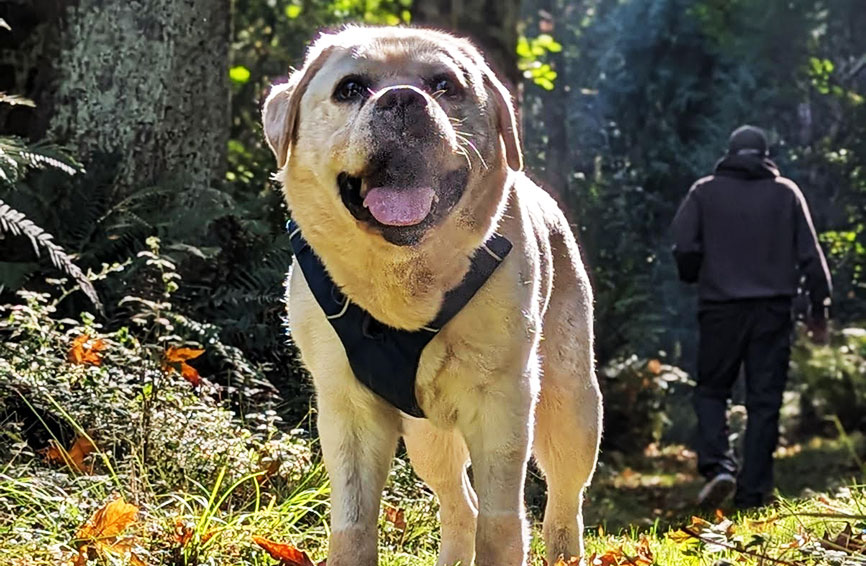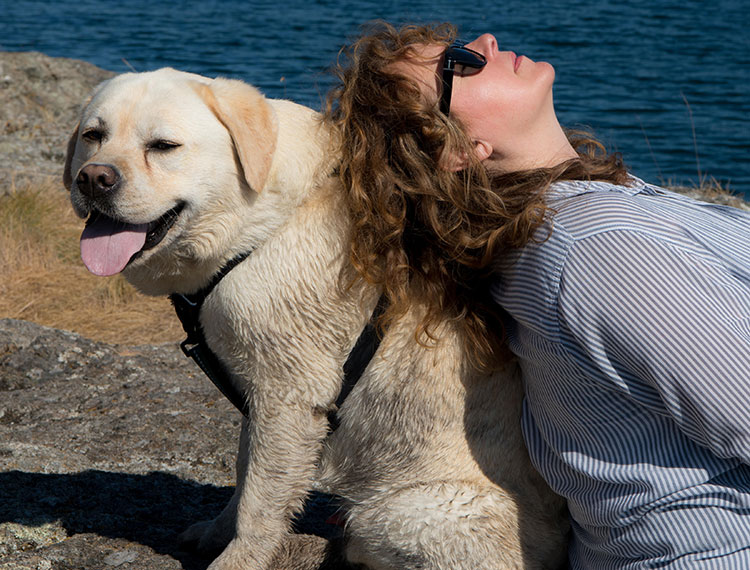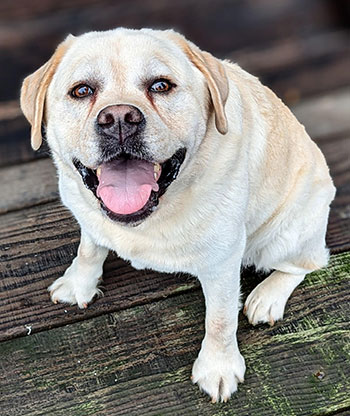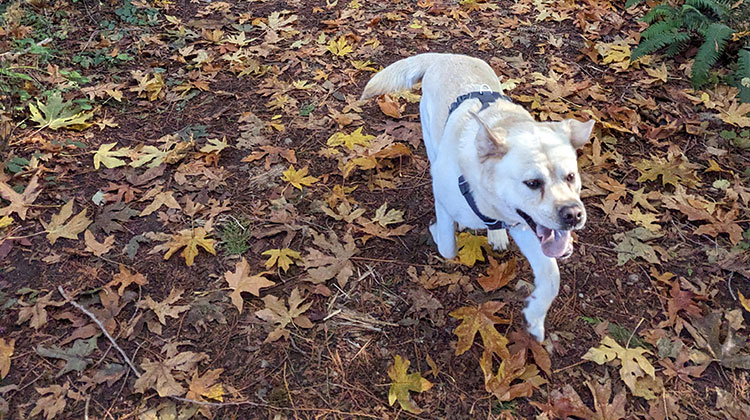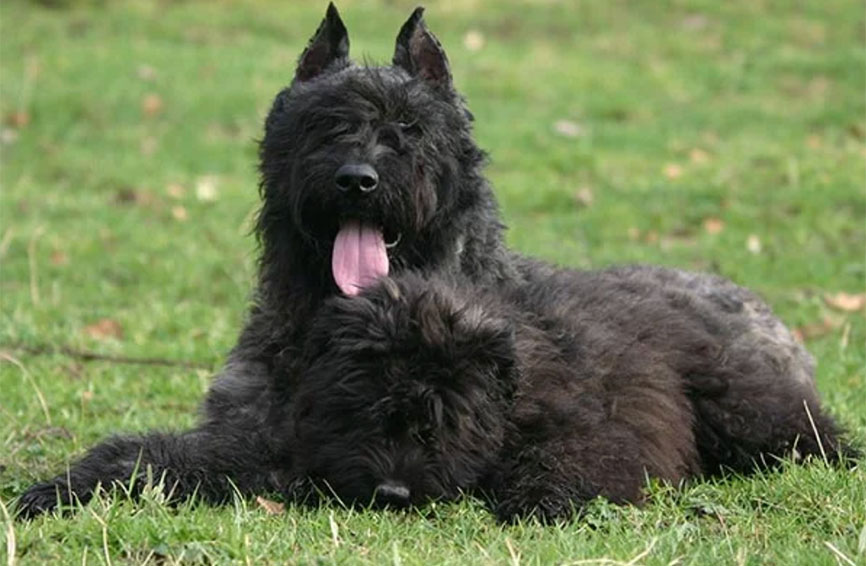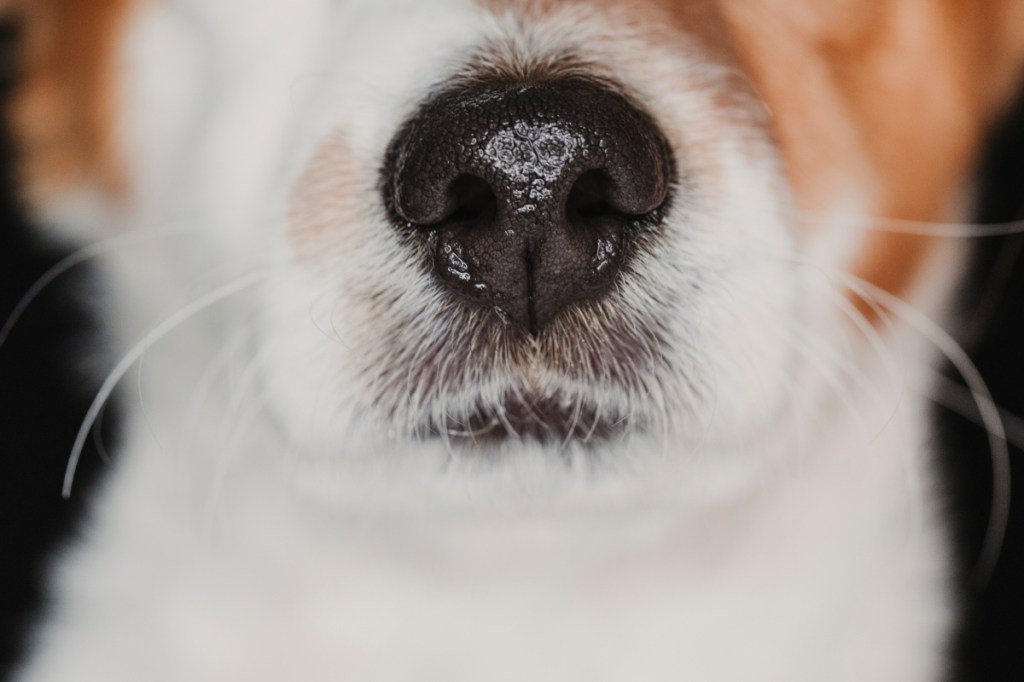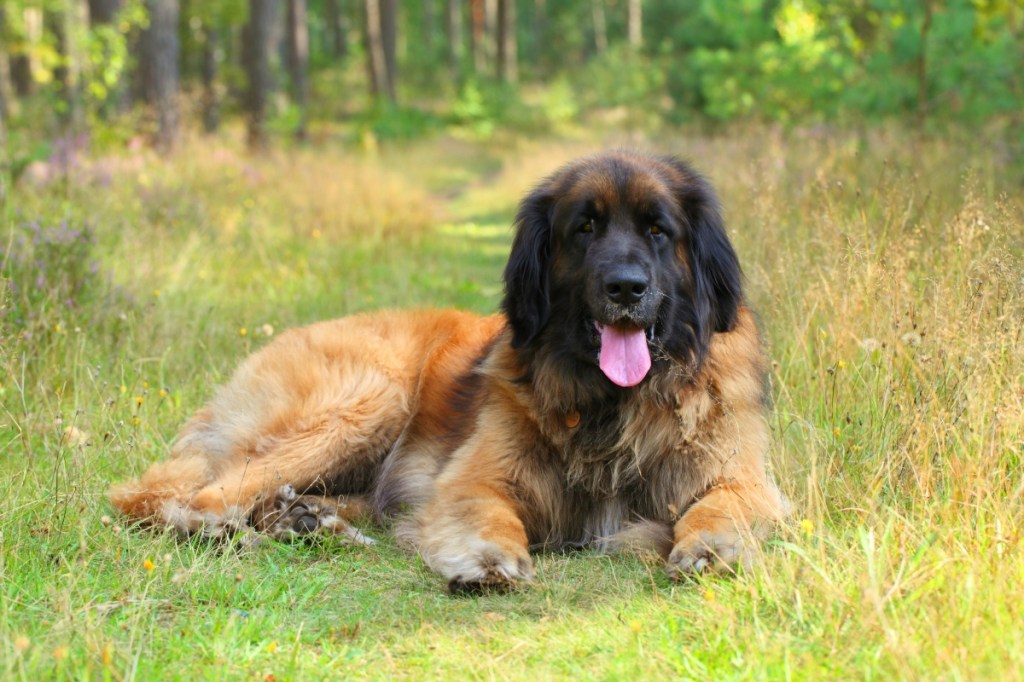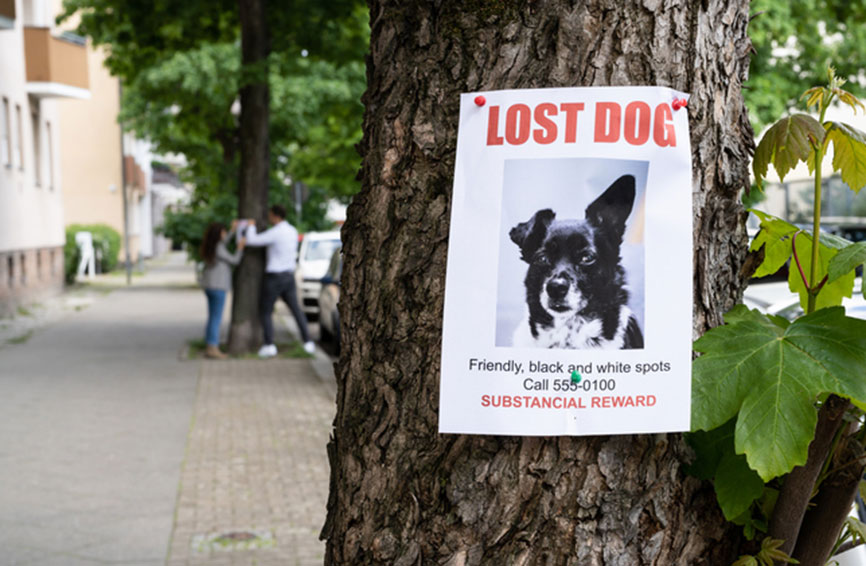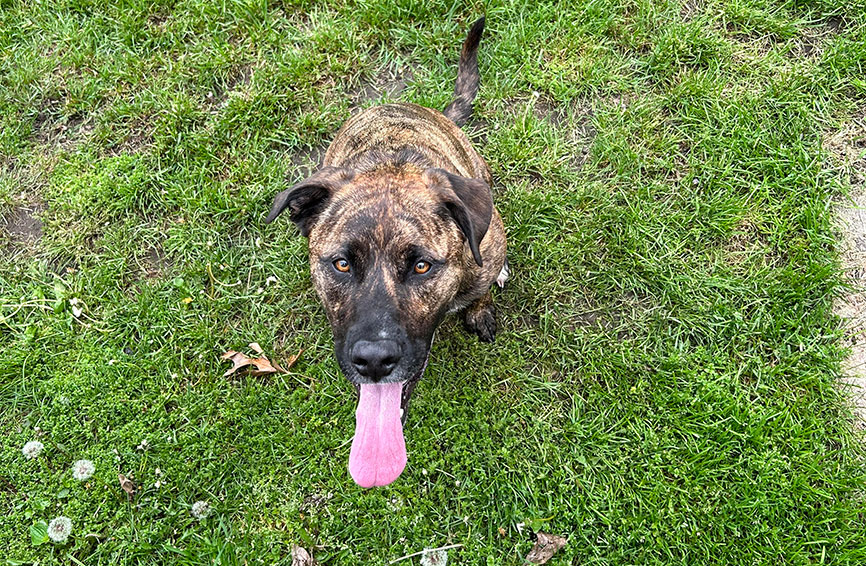Table of Contents
Diagnosis: Acromegaly
Cost: $11,472 | Healthy Paws reimbursed:$8,862
Coverage options: 80 percent reimbursement | $250 deductible
Hudson is a 9-year-old stocky, yellow English Labrador with a big blocky head. Typical of his breed, he adores “every living thing” – kids, dogs, adult humans, and other animals, said his pet parent Teresa.
“He is absolutely a lover and has never uttered or moaned a complaint despite his last few years earning him plenty to be unhappy about,” Teresa said. “He loves to cuddle on the couch and eat. Walks in the woods with soft ground underfoot are his favorite.”
Hudson has breathing issues
Last spring, Hudson’s already chunky head started to seem larger, which initially they attributed to him maturing. But then his breathing started sounding noisy and raspy and he was not tolerating heat very well.
Teresa took him to the vet to run some tests and they discovered his soft oral tissues were enlarging and slowly narrowing his airway. A routine physical showed he had high blood glucose, even though he had been taking insulin for diabetes. The vets ran through some conditions that might cause this, such as Addison’s disease or a thyroid condition, but they eliminated those as a cause.
They ran more tests – radiographs and an ultrasound of his abdomen, but nothing explained the high blood glucose. The radiologist thought his enlarged head could be an indication of acromegaly, also known as “giantism” in humans. The French wrestler and actor known as Andre the Giant suffered from this condition and was 7-foot-3-inches tall. But the condition is rare in humans and even more so in dogs, as the radiologist said she had never seen the condition in a dog.
More bloodwork was done for an official diagnosis and sent to Michigan State University’s laboratory to check his growth hormone levels. They came back high, confirming acromegaly. Teresa said both the general practitioners and specialists were stumped by the diagnosis, and she has yet to meet a vet who has seen it in dogs. The vets suggested surgery to remove a pituitary tumor Hudson likely had, which was the cause for the endocrine issue.
Teresa, who is a veterinary technician herself, knew Hudson faced an incurable disease, but she was not willing to take a chance on brain surgery, or expensive drug protocols that would have required several injections every day.
“Surgery is the gold standard but the involvement and possible alteration of his personality and vigor for life gave us pause. We just could not put him through that. Instead, we want to enjoy his time left with us fully,” she said. “He was a bit altered at the time but did not seem uncomfortable.”
She began researching whatever little she could find about the disease and sought out a second opinion on how to manage it to keep Hudson pain-free and buy a little more time. “There are few answers for us to deal with what he is going through,” she lamented.
The disease causes the growth hormone to continue to pump out high growth signals to his extremities, head, soft tissues and internal organs. Because of his overly large head, his teeth are spaced apart due to his cranial bones growing and misaligning. Eventually, his organs will become too large for his body cavity, his paws will continue to grow and spread causing pain and arthritic-type changes, she said.
While Teresa knows what to expect, she doesn’t know how quickly these changes could take, since the condition is so rare in dogs. Already, his paws are often sore and sensitive from his disease, and while he loves the water, he can no longer swim.
Hudson develops cataracts
Hudson developed cataracts, which are common in dogs with high blood glucose. He became blind yet continued enjoying walks and maintained his enthusiasm. Teresa did not want him living blind during the time he has left, so she opted for cataract surgery.
Now, about a month after the surgery, he can see but is a bit far-sighted and bumps into objects. Teresa is helping him by setting up a routine and making his living space easier to navigate.
“It is so important for seeing-challenged pets to have a consistent space they can learn to maneuver in their altered sight state. He really does well as we settle into that,” she said.
How Hudson is doing now
Hudson was not expected to live long after his diagnosis, especially since he probably had the disease for years. Yet six months later, he is doing fine and still relishing life.
Teresa and her family are focusing on keeping Hudson comfortable and happily enjoying every day with those who love him. She watches him carefully to ensure he is not suffering. Hudson still enjoys daily walks, and he eats well. He takes pain relief medication, CBD chews, and other immune system supplements and vitamins that are said to help minimize cancer effects.
How pet insurance helped
Teresa saw in her vet tech practice how pet insurance allowed people to get the best care without finances getting in the way, and enrolled Hudson at a young age. She believes acromegaly may be more common than is known, but most people can’t afford the cost of all the diagnostics to find out.
“I had seen too many pets not treated due to high costs. And often a stress placed onto clients to care for their beloved pets,” she said.
Without insurance, Teresa said she wouldn’t have been able to maintain the frequent and ongoing insulin treatments, blood monitoring, diagnostics and hospital care that Hudson has required. Hudson is comfortable and active through conventional medical practices and a bit of Eastern approaches in his care.
“I get emotional and am so thankful in knowing how the support from Healthy Paws has given us a bit of time with him. He is a kind soul and embedded in our hearts,” she said.
The claim scenarios described here are intended to show the types of situations that may result in claims. These scenarios should not be compared to any other claim. Whether or to what extent a particular loss is covered depends on the facts and circumstances of the loss, the terms and conditions of the policy as issued, and applicable law.
Insured persons providing testimonials in this report have not received compensation for their statements.
